#gibborim
Explore tagged Tumblr posts
Text
THE DEAD SEA SCROLLS BOOK OF GIANTS DETAILS ANTE-DILUVIAL FALLEN SONS OF GOD/WATCHERS, TURNED INTO NEPHILIM, GIBBORIM, REPHAIM
The "Book of Giants" is contained in this work…Qumran and Apocalyptic bt Florentino Garcia Martinez📖 https://t.co/gtvsQdZL8dfree to borrow from the Internet Archive pic.twitter.com/sTCXq4fxHD— Steph Kent (@covertress) April 30, 2024 THE BOOK OF GIANTS USED TO BE IN THE BIBLE, BUT GOT PULLED OUT; WHY? Fallen Angel Demonology Explained in Obsessive Detail | Mr. Mythoshttps://t.co/LlaGQWT89fA…
View On WordPress
#and Istrael#Antediluvian#apocryphal book#book of enoch#Book of Giants#boundaries of creation#Daniel 7:9-14#dead sea scrolls#demons#destruction of humanity#enoch#gabriel#Genesis 6:1-4#giants#gibborim#Gilgamesh#Great flood#grigori#Hobabish#holy ones#Istrael#Manichaean#michael#nephilim#Noah#or rephaim#preflood#raphael#rebellion against God#sons Of God
0 notes
Text
There's something that itches at my brain about Khonsu getting named after an Egyptian god. The original three Endbringers were all named after Hebrew monsters in ways that roughly aligned with their image and abilities (the Simurgh also being called "Ziz" from what I remember.) They follow that naming pattern with Tohu and Bohu. But then for Khonsu they go Egyptian? Are you telling me there isn't some suitable Abrahamic apocrypha that you can use for this guy?
And then they go and call the Dauntless Titan "Kronos" and I think fine, sure, its a titan not an endbringer—only for Amy to christen the Chevalier titan the "Gibborim Knight," returning to the Hebrew-mythology naming convention! So now we have two monsters that feel off-pattern!
36 notes
·
View notes
Text
Bad thing about Alex's return and the Gibborim kids showing up right after the Deanoru kiss thing is that we never got anyone's reaction to them being a couple now lol. Idk imagine if the Alex and Gibborim thing happened a couple of days later or something and those two hadn't been interrupted and the next morning they go downstairs to have breakfast holding hands and end up announcing stuff lmao. Or even funnier, when they get to the Hostel at night they go upstairs together giggling and kissing and trying to be silent and shit while getting to their room and someone (probably Gert) catches them and the three of them are like 🧍♀️staring at each other for a second lmao. Imagine them not being distracted and shit for that week and finding out about the tabloid thing and being like🧍♀️lmao. Anyway the announcement and reactions of the others would've been funny and cute to see. At least we got Old Lace and Alex lmao
10 notes
·
View notes
Text
A Marvel Runaways animated series?!
This is probably far fetched but after a failed attempt at Marvel making a Runaways movie back in 2008 and the live action series being cancelled after three seasons in 2019.
Marvel has an opportunity to adapt more of their comic series into animated shows. After the recent success and fame of Moon Girl and Devil Dinosaur season 2. And Kevin Feige has a chance to make the other Netflix/ABC Marvel series to MCU canon.
Marvel’s Runaways first appearing in their issue on July, 2003. A group of teens discover their parents who are a part of Pride, a charity organization, are actually murderers when they witness them sacrificing a teenage girl. From then on they become the “Runaways” most of them discover they have powers or abilities. From super strength to a physic connection with a time traveling dinosaur, to amazing hacker skills.
With a series of comics featuring ninjas (who are also mutants), wizards, crime lords, time travelers, mad scientists, aliens while also all of it taking place on the West Coast, With similar animation to these series would be great!!
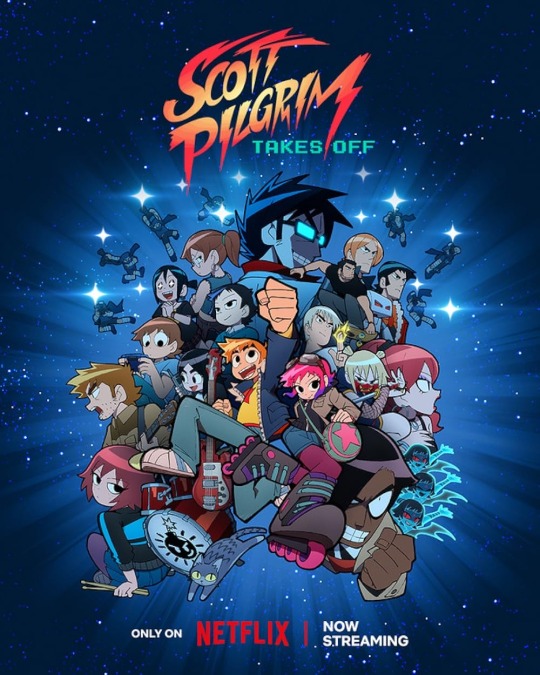



Now for how to mesh the comic and tv adaptations canon together.
All of the Pride’s original abilities should be the same as it is in the comics, so Frank and Leslie Dean are both aliens and Gene and Alice Hayes/Hernandez both have the X gene.
Karolina has a similar arc as she did in the series with her finding out her sexuality. Which leads to the start of Nico and Karolina’s relationship.
The Gibborim are featured more so they are more of a threat to the Runaways
Alex is the leader of the Runaways but eventually will betray the team as he does in the comics.
Klara Prast is featured. Therefore the time travel element of the Runaways is important. The same as it is with Old Lace and Gert’s death.
Similar to Moon Girl and Devil Dinosaur, this series would have MCU Easter eggs that don’t go far beyond on that.
Gert and Molly are not siblings in this version but still have their strong bond.
The found family trope is still very much present as it is one of the lovable and important things about the team.
#marvel#marvel mcu#marvel runaways#xmen#marvel comics#Gertrude Yorkes#karolina dean#alex wilder#chase stein#Molly Hayes Hernandez#nico minoru#lgbt pride
17 notes
·
View notes
Text
Picnic

Title: Picnic.
Fandom: Marvel, Runaways.
Ship: Tina Minoru X Robert Minoru (Love).
Word count: 237 words.
Square: 1 “Picnic.”
Rating: Teen.
Summary: Robert and Tina always talk about important decisions on a picnic.
Major Tags: Mention of Jonah.
Additional tags: This is my entry to @marvelrarepairbingo, @marvelrarepairs Marvel Rare Mini Event Spring Fling 2024. SFW Spring Fling Bingo Card #3.
Links: Wattpad, Ao3, Spanish version.

@saiyanprincessswanie
My native language is Spanish so I wanna improve my writing skills in English if you notice any mistakes, please let me know and I will correct them.
I don’t give any kind of permission for my fics to be posted on other platforms or languages (I translate myself my work) or the use of my graphics (my dividers are included in this), I did them exclusively for my fics, please respect my work and don't steal it. There are some people here who make dividers that anyone can use, mine is not this type, please look for the other people. The only exception is the ones I gifted 'cuz now belong to someone else. If you find any of my works on a different platform and are not one of my accounts, please let me know. Reblogs and comments are always welcome.
DISCLAIMER: I don't own Marvel's characters (unfortunately), except for the original characters and the story.
Add yourself to my taglist here.
My other media where I publish: Ao3, Wattpad, ffnet, TikTok, Instagram, Twitter.
If you like it, please vote, comment, and give me feedback to improve my skills and reblog.
Tags: @sinceimetyou @unnuevosoltransformalarealidad @navybrat817 @angrythingstarlight @shield-agent78 @charmed-asylum @pandaxnienke @real-fbi @smokeandnailz @white-wolf1940 @tenaciousperfectionunknown @xoxonotme @bluemusickid @leyannrae @harrysthiccthighss @marvelatthisone @caplanbuckybarnes @sapphire-rogers @lizzieolseniskinda @notyourtypicalrose @hallecarey1 @nana1000night @talia-rumlow @writingshae @alexxavicry @azulatodoryuga @daemonslittlebitch @chaoticcollectivenightmare @endlesstwanted @chemtrails-club @marigoldreamer @whiskeytangofoxtrot555 @here4thefanfics @theestorm @patzammit @kmc1989 @somegirlfromasgard @rogersbarber

Robert and Tina Minoru decided to have a little date in the park—a picnic. They needed to talk about a very important issue; they had only been married for a few months, and things were not going well. However, a few days before, they had received a strange proposal.
They were eating sandwiches while looking at the trees in the park. Since they were dating, when they wanted to talk about something important or resolve a situation, they always went on a picnic.
“So... what do you think about what Jonah said?” Tina asked, breaking the silence.
“It sounds too ambitious; do you really think there's anyone who can have that much influence?” Robert sounded completely skeptical.
“He sounds like someone very powerful; just look at what he's doing with the Gibborim; I think it's an opportunity we can't afford to waste.”
“Do you think we can finally have the company we've always dreamed of?”
“Sure, he said it was easy; we just have to do what he asks us to do.”
The leaves on the trees began to fall, and Robert began to think that maybe his wife was right; they should accept; it didn't seem like they could lose anything; they didn't even have to lose; they could finally see their dreams come true.
Meanwhile, Tina wondered if it worked out what Jonah had proposed: don't forget to have picnics once in a while.
17 notes
·
View notes
Note
I am a huge fan of Marvel’s Runaways so I am curious as to where you would put the Staff of One when it comes to power . In the show it seems to work like a miniature versions of the infinity stones able to essentially eat reality to your will but limited to its users power but what would its potential be with someone who has mastered it ? Also where would you put the The Gibborim on the galactic scale . They seem to be immortal and their technology seems light years ahead but they don’t seem to be very well know.
The Staff of One is a pretty interesting artifact: drawn upon and powered by blood, it can create almost any magical effect you can imagine, exactly once (per master). Attempting to perform the same spell twice will produce a completely randomized effect (kinda like a wild magic surge in D&D).
It does have a few limitations that keep it from becoming too dangerous to allow its existence; to name a few, it can't destroy the indestructible, kill the deathless (gods, for example), it can't (permanently) change the rules of the universe, and the staff itself, while very durable, is not unbreakable. Still, depending on the wielder's creativity, they may be able to bypass some of these limitations - for example, you couldn't shatter Cap's indestructible shield, but you could teleport it out of his hands and to the other side of the planet.
Furthermore the single spell limitation can be worked with; one spell may be used to produce a stream of flame, while another summons a fireball - though both create fire, they're considered separate concepts, and a creative caster may be able to use distinctions like that to their advantage. Lots of trial and error involved, as you might imagine. And even if you've somehow exhausted your creativity, the staff also serves as a magical focus, aiding in the use of "normal" magic.
As for the Gibborim, I guess the alien angle is something the show went for (I'm not very familiar with it, just the comics)? They're ancient gods here, primeval types that existed before established pantheons or religions were a thing. Their power has diminished considerably, which is why they require human sacrifices in order to grant boons to the Pride.
2 notes
·
View notes
Text

Wicked and Divine: Part 1, Chapter 1
all her life, she's bound to lose...
Summary:
When John Winchester gets a call from a thirteen-year-old girl claiming to be his daughter, he and Dean go to investigate, bringing them into a complicated web woven by a charismatic cult leader named David Elwood--who also claims to be the girl's "husband."
Or, how Esther Smith became Leila Winchester.
Warnings: Sexual Abuse, Religious Abuse, Cults, Child Marriage, Pregnancy, Miscarriage
Pairings: None
Next Chapter | Masterlist
Read on AO3
Oregon, 1988
“I shouldn’t be flirting with you,” Melisa says, taking another drink of whiskey. It burns, and she knows it’s supposed to. It still feels like punishment.
John Winchester sits across from her, studying her. He’s a quiet man, she’s found, in the short time she’s known him, but she thinks there’s nothing that really gets past him.
“And why’s that?” he asks, a smile toying at the corner of his mouth. “You got someone at home?”
An icy chill settles into her gut. “Define ‘home,’” she says. There’s nobody waiting for her in her apartment, but there’s a presence that follows her everywhere ever since she met him . The man that changed her life. Sometimes, in petty, ungrateful, cowardly moments, she wonders if it was really for the better.
John looks away, pensive, and takes a swig of his own drink in lieu of a response. She wonders what home is to him.
She takes him to her apartment anyway. Maybe she shouldn’t--despite the fact that he saved her life, he’s still a stranger, and a sketchy one at that. Maybe it’s that risk that makes him appealing to her. Maybe that’s what it all comes down to.
She keeps looking at her Gibborim Bible on her side table, like she’s asking it for forgiveness. John follows her gaze. He doesn’t ask about it. She supposes he’s seen too many crazy things to call anyone’s religion crazy.
“I can’t stay the night,” John says as he starts getting dressed. “Sorry.” He sounds genuine, if cavalier.
“Do you believe in faith healers?” Melisa asks him instead, apropos of nothing, and he gives her that scrutinizing look again, the one that seems to pierce right through her.
“I’ve never seen one that was legit,” he says finally, with a shrug.
“And you’ve seen a lot of crazy things,” she clarifies.
He smiles bitterly. “Something like that, yeah.”
He looks at her again, a little softer this time, and she thinks he’s about to ask if she’s okay--she’s already bristling, ready to lash out at the question--
He shakes his head and looks down, pulling out a small notebook and scribbling something down.
“This is my phone number,” he says, tearing the page out and setting it on her side table. She could swear there’s something...pointed, about the way he sets it on her bible. “In case there’s any more dybbuk trouble.”
Melisa nods a little. It’s unlikely. She’s probably never seeing him again, she realizes. There’s something bittersweet in that. It’s better that way.
“Thanks for saving my life,” she tells him.
He smiles. “You already told me that.”
“It’s worth repeating.” She smiles a little. “Goodbye, John.”
John has only been gone for a minute or so when he calls. And it’s one of those things that keeps her coming back, one of those things that doesn’t make sense unless he is what he says he is: he always knows when to call. He always knows when something’s happened, when she needs guidance.
“David,” she says when she picks up. Thank God.
“Melisa,” David says in that calm, velvet voice. “How are you?”
“I’m--” she almost says ‘good,’ reflexively, but she promised him she would never keep secrets from him. It’s liberating, in a way.
She can’t find the words, so she sighs.
“I sensed turmoil in your spirit,” David says, after giving her a moment to speak. “That’s why I called. Are you alright?”
“I--” she hesitates for a long moment. All of her guilt, all of her fear, it hits her all at once, and she feels like she could drown in it. Finally, she admits, “I need help.”
“I’ll be there in fifteen minutes,” David replies. “We’ll pray together, you and me. It’ll be alright.”
And there’s something in his voice that makes her believe him, more than she’s ever believed in anything.

2002
It’s early in the afternoon when Jim Murphy gets the call.
Sam is in the kitchen doing homework. Jim had told him to ask if he needed help, but Sam doesn’t seem to need it. He’s a smart kid. Jim wonders, idly, what he could do in a family that stayed in one place for longer than three months at a time.
“Jim Murphy.”
There’s a long pause on the other end of the line.
“Hello?”
“Um. I’m looking for John Winchester?” The voice on the other end is young, female, and sounds scared. Quiet, like she’s trying not to be overheard somehow.
Jim knows that John used to give out his number as his own, back before cell phones were ubiquitous, but he hasn’t gotten a call for him in nearly a decade. “How’d you get this number, kiddo?”
“It was in my mom’s stuff. Her name was Melissa Smith. I--I think I’m his daughter.” Her voice breaks as the words tumblr out, quickly, like she’s running out of time. “And I need his help.”
“How old are you?” He reaches for a pad of paper and a pen on the counter.
“Thirteen.”
“What’s your address?”
“I don’t--I don’t know what that means. Please can I just talk to John? I need help.”
How does a thirteen year old not know their address? “Where do you live? I’ll send him.”
“Woodscross.”
“Where is that?”
“In Oregon.” She pronounces Oregon strangely, like Oree-gone . He files away that detail for later. “Please help me. I think he’s trying to kill me.”
Jim Murphy is good in a crisis--it’s kind of his job--but the words do surprise him. He tries to keep his voice calm, for her sake.
“Whoa, slow down. Who’s trying to kill you?”
There’s another long pause, and then: “I have to go. I think they found me.”
“No, wait, what’s your n--”
Click.
32 notes
·
View notes
Text
{☄️💨🛸/🌫️✈️ 🙌🏿🙌🏾🙌🏿}THE ANU Anunnaki translates as those who Anu sent from heaven to earth
They were also called NEPHILIM meaning To fall down to Earth, to land
{ELOHEEM}in the bible meaning These Beings.
In ashuric/syriac (arabic) they are called Jabaariyn meaning
the mighty ones
In Aramic (hebrew) Gibborim meaning The Mighty or Majestic ones
They are also called {NETERU}which is an Kemites term for Anunnaki.
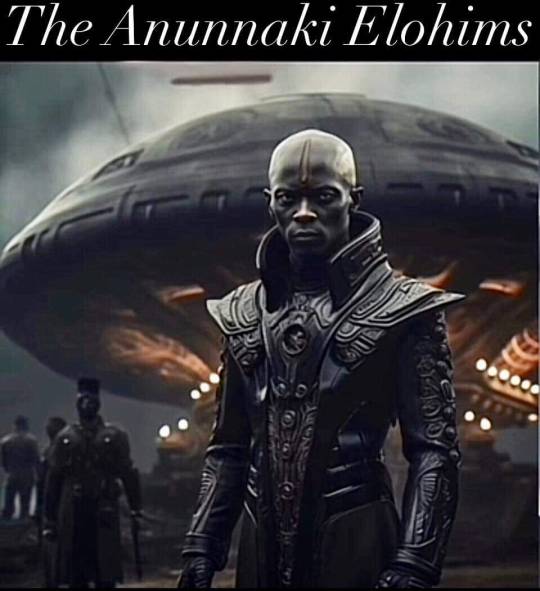
10 notes
·
View notes
Text
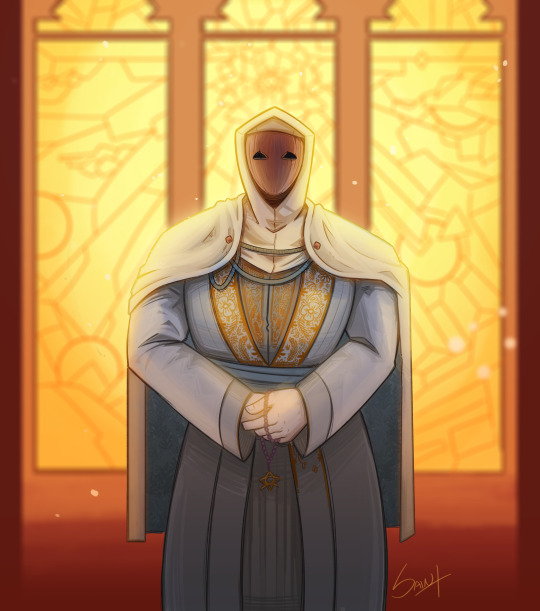
GIBBORIM A comission for a lovely peep from Reddit Emblem
2 notes
·
View notes
Text
Nephilim
The Nephilim are mysterious beings or people in the Hebrew Bible who are described as being large and strong. The word Nephilim is loosely translated as giants in most translations of the Hebrew Bible, but left untranslated in others. Some Jewish explanations interpret them as hybrid sons of fallen angels (demigods).

The main reference to them is in Genesis 6:1–4, but the passage is ambiguous and the identity of the Nephilim is disputed. According to the Book of Numbers 13:33, a report from ten of the Twelve Spies was given of them inhabiting Canaan at the time of the Israelite conquest of Canaan.
A similar or identical biblical Hebrew term, read as "Nephilim" by some scholars, or as the word "fallen" by others, appears in the Book of Ezekiel 32:27 and is also mentioned in the deuterocanonical books Judith 16:6, Sirach 16:7, Baruch 3:26–28, and Wisdom 14:6.
Etymology
The Brown-Driver-Briggs Lexicon (1908) gives the meaning of Nephilim as "giants", and holds that proposed etymologies of the word are "all very precarious". Many suggested interpretations are based on the assumption that the word is a derivative of Hebrew verbal root n-p-l "fall." Robert Baker Girdlestone argued in 1871 the word comes from the hif'il causative stem, implying that the Nephilim are to be perceived as 'those that cause others to fall down'. Ronald Hendel states that it is a passive form: 'ones who have fallen', grammatically analogous to paqid 'one who is appointed' (i.e., a deputy or overseer), asir 'one who is bound' (i.e., a prisoner), etc.
The majority of ancient biblical translations – including the Septuagint, Theodotion, Latin Vulgate, Samaritan Targum, Targum Onkelos, and Targum Neofiti – interpret the word to mean "giants". Symmachus translates it as "the violent ones" and Aquila's translation has been interpreted to mean either "the fallen ones" or "the ones falling [upon their enemies]."
In the Hebrew Bible, there are three interconnected passages referencing the nephilim. Two of them come from the Pentateuch. The first occurrence is in Genesis 6:1–4, immediately before the account of Noah's Ark. Genesis 6:4 reads as follows:
Where the Jewish Publication Society's translation simply transliterates the Hebrew nephilim as "Nephilim", the King James Version translates the term as "giants".
The nature of the Nephilim is complicated by the ambiguity of Genesis 6:4, which leaves it unclear whether they are the "sons of God" or their offspring who are the "mighty men of old, men of renown". Richard Hess takes it to mean that the Nephilim are the offspring, as does P. W. Coxon.
The second is Numbers 13:32–33, where ten of the Twelve Spies report that they have seen fearsome giants in Canaan:
Outside the Pentateuch there is one more passage indirectly referencing nephilim and this is Ezekiel 32:17–32. Of special significance is Ezekiel 32:27, which contains a phrase of disputed meaning. With the traditional vowels added to the text in the medieval period, the phrase is read gibborim nophlim ("'fallen warriors" or "fallen Gibborim"), although some scholars read the phrase as gibborim nephilim ("Nephilim warriors" or "warriors, Nephilim"). According to Ronald S. Hendel, the phrase should be interpreted as "warriors, the Nephilim" in a reference to Genesis 6:4. The verse as understood by Hendel reads:
Brian R. Doak, on the other hand, proposes to read the term as the Hebrew verb "fallen" , not a use of the specific term "Nephilim", but still according to Doak a clear reference to the Nephilim tradition as found in Genesis.
Interpretations:
Giants
Most of the contemporary English translations of Genesis 6:1–4 and Numbers 13:33 render the Hebrew nefilim as "giants". This tendency in turn stems from the fact that one of the earliest translations of the Hebrew Bible, the Septuagint, composed in the 3rd or 2nd century BCE, renders the said word as gigantes. The choice made by the Greek translators has been later adopted into the Latin translation, the Vulgate, compiled in the 4th or 5th century CE, which uses the transcription of the Greek term rather than the literal translation of the Hebrew nefilim. From there, the tradition of the giant progeny of the sons of God and the daughters of men spread to later medieval translations of the Bible.
The decision of the Greek translators to render the Hebrew nefilim as Greek gigantes is a separate matter. The Hebrew nefilim means literally "the fallen ones" and the strict translation into Greek would be peptokotes, which in fact appears in the Septuagint of Ezekiel 32:22–27. It seems then that the authors of Septuagint wished not only to simply translate the foreign term into Greek, but also to employ a term which would be intelligible and meaningful for their Hellenistic audiences. Given the complex meaning of the nefilim which emerged from the three interconnected biblical passages (human–divine hybrids in Genesis 6, autochthonous people in Numbers 13 and ancient warriors trapped in the underworld in Ezekiel 32), the Greek translators recognized some similarities. First and foremost, both nefilim and gigantes were liminal beings resulting from the union of the opposite orders and as such retained the unclear status between the human and divine. Similarly dim was their moral designation and the sources witnessed to both awe and fascination with which these figures must have been looked upon. Secondly, both were presented as impersonating chaotic qualities and posing some serious danger to gods and humans. They appeared either in the prehistoric or early historical context, but in both cases they preceded the ordering of the cosmos. Lastly, both gigantes and nefilim were clearly connected with the underworld and were said to have originated from earth, and they both end up closed therein.
In 1 Enoch, they were "great giants, whose height was three hundred cubits". A cubit being 18 inches (46 cm), this would make them 450 feet (140 m) tall.
The Quran refers to the people of Ād in Quran 26:130 whom the prophet Hud declares to be like jabbarin (Hebrew: gibborim), probably a reference to the Biblical Nephilim. The people of Ād are said to be giants, the tallest among them 100 ft (30 m) high. However, according to Islamic legend, the ʿĀd were not wiped out by the flood, since some of them had been too tall to be drowned. Instead, God destroyed them after they rejected further warnings. After death, they were banished into the lower layers of hell.
Fallen angels
All early sources refer to the "sons of heaven" as angels. From the third century BCE onwards, references are found in the Enochic literature, the Dead Sea Scrolls (the Genesis Apocryphon, the Damascus Document, 4Q180), Jubilees, the Testament of Reuben, 2 Baruch, Josephus, and the book of Jude (compare with 2 Peter 2). For example: 1 Enoch 7:2 "And when the angels, (3) the sons of heaven, beheld them, they became enamoured of them, saying to each other, Come, let us select for ourselves wives from the progeny of men, and let us beget children." Some Christian apologists, such as Tertullian and especially Lactantius, shared this opinion.
The earliest statement in a secondary commentary explicitly interpreting this to mean that angelic beings mated with humans can be traced to the rabbinical Targum Pseudo-Jonathan and it has since become especially commonplace in modern Christian commentaries. This line of interpretation finds additional support in the text of Genesis 6:4, which juxtaposes the sons of God (male gender, divine nature) with the daughters of men (female gender, human nature). From this parallelism it could be inferred that the sons of God are understood as some superhuman beings.
The New American Bible commentary draws a parallel to the Epistle of Jude and the statements set forth in Genesis, suggesting that the Epistle refers implicitly to the paternity of Nephilim as heavenly beings who came to earth and had sexual intercourse with women. The footnotes of the Jerusalem Bible suggest that the biblical author intended the Nephilim to be an "anecdote of a superhuman race".
Some Christian commentators have argued against this view, citing Jesus's statement that angels do not marry. Others believe that Jesus was only referring to angels in heaven.
Evidence cited in favor of the fallen angels interpretation includes the fact that the phrase "the sons of God" ("sons of the gods") is used twice outside of Genesis chapter 6, in the Book of Job (1:6 and 2:1) where the phrase explicitly references angels. The Septuagint manuscript Codex Alexandrinus reading of Genesis 6:2 renders this phrase as "the angels of God" while Codex Vaticanus reads "sons".
Targum Pseudo-Jonathan identifies the Nephilim as Shemihaza and the angels in the name list from 1 Enoch.
Second Temple Judaism
The story of the Nephilim is further elaborated in the Book of Enoch. The Greek, Aramaic, and main Ge'ez manuscripts of 1 Enoch and Jubilees obtained in the 19th century and held in the British Museum and Vatican Library, connect the origin of the Nephilim with the fallen angels, and in particular with the egrḗgoroi (watchers). Samyaza, an angel of high rank, is described as leading a rebel sect of angels in a descent to earth to have sexual intercourse with human females:
In this tradition, the children of the Nephilim are called the Elioud, who are considered a separate race from the Nephilim, but they share the fate of the Nephilim.
Some believe the fallen angels who begat the Nephilim were cast into Tartarus (2 Peter 2:4, Jude 1:6) (Greek Enoch 20:2), a place of "total darkness". An interpretation is that God granted ten percent of the disembodied spirits of the Nephilim to remain after the flood, as demons, to try to lead the human race astray until the final Judgment.
In addition to Enoch, the Book of Jubilees (7:21–25) also states that ridding the Earth of these Nephilim was one of God's purposes for flooding the Earth in Noah's time. These works describe the Nephilim as being evil giants.
There are also allusions to these descendants in the deuterocanonical books of Judith (16:6), Sirach (16:7), Baruch (3:26–28), and Wisdom of Solomon (14:6), and in the non-deuterocanonical 3 Maccabees (2:4).
The New Testament Epistle of Jude (14–15) cites from 1 Enoch 1:9, which many scholars believe is based on Deuteronomy 33:2. To most commentators this confirms that the author of Jude regarded the Enochic interpretations of Genesis 6 as correct; however, others have questioned this.
Descendants of Seth and Cain
References to the offspring of Seth rebelling from God and mingling with the daughters of Cain are found from the second century CE onwards in both Christian and Jewish sources (e.g., Rabbi Shimon bar Yochai, Augustine of Hippo, Sextus Julius Africanus, and the Letters attributed to St. Clement). It is also the view expressed in the modern canonical Amharic Ethiopian Orthodox Bible: Henok 2:1–3 "and the Offspring of Seth, who were upon the Holy Mount, saw them and loved them. And they told one another, 'Come, let us choose for us daughters from Cain's children; let us bear children for us.'"
Orthodox Judaism has taken a stance against the idea that Genesis 6 refers to angels or that angels could intermarry with men. Shimon bar Yochai pronounced a curse on anyone teaching this idea. Rashi and Nachmanides followed this. Pseudo-Philo (Biblical Antiquities 3:1–3) may also imply that the "sons of God" were human. Consequently, most Jewish commentaries and translations describe the Nephilim as being from the offspring of "sons of nobles", rather than from "sons of God" or "sons of angels". This is also the rendering suggested in the Targum Onqelos, Symmachus and the Samaritan Targum, which read "sons of the rulers", where Targum Neophyti reads "sons of the judges".
Likewise, a long-held view among some Christians is that the "sons of God" were the formerly righteous descendants of Seth who rebelled, while the "daughters of men" were the unrighteous descendants of Cain, and the Nephilim the offspring of their union. This view, dating to at least the 1st century CE in Jewish literature as described above, is also found in Christian sources from the 3rd century if not earlier, with references throughout the Clementine literature, as well as in Sextus Julius Africanus, Ephrem the Syrian, and others. Holders of this view have looked for support in Jesus' statement that "in those days before the flood they [humans] were ... marrying and giving in marriage" (Matthew 24:38, emphasis added).
Some individuals and groups, including St. Augustine, John Chrysostom, and John Calvin, take the view of Genesis 6:2 that the "Angels" who fathered the Nephilim referred to certain human males from the lineage of Seth, who were called sons of God probably in reference to their prior covenant with Yahweh (cf. Deuteronomy 14:1; 32:5); according to these sources, these men had begun to pursue bodily interests, and so took wives of "the daughters of men", e.g., those who were descended from Cain or from any people who did not worship God.
This also is the view of the Ethiopian Orthodox Church, supported by their own Ge'ez manuscripts and Amharic translation of the Haile Selassie Bible—where the books of 1 Enoch and Jubilees, counted as canonical by this church, differ from western academic editions. The "Sons of Seth view" is also the view presented in a few extra-biblical, yet ancient works, including Clementine literature, the 3rd century Cave of Treasures, and the c. 6th century Ge'ez work The Conflict of Adam and Eve with Satan. In these sources, these offspring of Seth were said to have disobeyed God, by breeding with the Cainites and producing wicked children "who were all unlike", thus angering God into bringing about the Deluge, as in the Conflict:
Arguments from culture and mythology
In Aramaic culture, the term niyphelah refers to the Constellation of Orion and nephilim to the offspring of Orion in mythology. However the Brown–Driver–Briggs lexicon notes this as a "dubious etymology" and "all very precarious".
J. C. Greenfield mentions that "it has been proposed that the tale of the Nephilim, alluded to in Genesis 6 is based on some of the negative aspects of the Apkallu tradition." The apkallu in Sumerian mythology were seven legendary culture heroes from before the Flood, of human descent, but possessing extraordinary wisdom from the gods, and one of the seven apkallu, Adapa, was therefore called "son of Ea" the Babylonian god, despite his human origin.
Arabian paganism
Fallen angels were believed by Arab pagans to be sent to earth in form of men. Some of them mated with humans and gave rise to hybrid children. As recorded by Al-Jahiz, a common belief held that Abu Jurhum, the ancestor of the Jurhum tribe, was actually the son of a disobedient angel and a human woman.
Fossil remains
Alleged discoveries of Nephilim remains have been a common source of hoaxing and misidentification.
In 1577, a series of large bones discovered near Lucerne were interpreted as the bones of an antediluvian giant about 5.8 m (19 ft) tall. In 1786, Johann Friedrich Blumenbach found out that these remains belonged to a mammoth. Cotton Mather believed that fossilized leg bones and teeth discovered near Albany, New York, in 1705, were the remains of nephilim who perished in a great flood. Paleontologists have identified these as mastodon remains.
9 notes
·
View notes
Text

Runaways, Vol. 3: That Was Yesterday by Rainbow Rowell
"'What the-- who greenlit Gibborim 2: Electric Boogaloo?'"
Year Read: 2023
Rating: 3/5
Thoughts: Admittedly, I sort of lost enthusiasm for this volume right in the middle, but I don't think that's any fault of Rowell's. I had a lot going on in my personal life, some if it rather unfortunately tied to my love for comics, and I'll likely be taking a break from this series until the sting wears off and it's fun again. I'd hate to lose some books I love just because things in real life don't always work out.
All that aside, I think this is a pretty solid installment. I have a special love for Gib, so I really enjoyed seeing the Gibborim play a more amicable role in the story. It nicely brings some of the plot of the older Runaways comics into this one, and it feels very much like a loving homage. I'm also in love with the Doombot who befriends Victor Mancha's head and has all the funniest lines in this collection. Dr. Doom can be hit or miss depending on the characters and the story, but that brand of irreverent humor fits perfectly with the Runaways.
#book review#graphic novel review#graphic novel#rainbow rowell#runaways: that was yesterday#runaways#that was yesterday#3/5#rating: 3/5#2023
2 notes
·
View notes
Text
Antediluvian Period Civilizations; Huge Stone Structures Found All Over The World, From Before The Great Flood
ANTEDILUVIAN PERIOD DEFINED IN MANY BOOKS Wikipedia; “The antediluvian (alternatively pre-diluvian or pre-flood) period is the time period chronicled in the Bible between the fall of man and the Genesis flood narrative in biblical cosmology. The term was coined by Thomas Browne. The narrative takes up chapters 1–6 (excluding the flood narrative) of the Book of Genesis. The term found its way…

View On WordPress
#adamitic#ancient#Antediluvian#before great flood#behemoth#Bible#Civilizations#creation story#disobedience to God#fallen angels#fallen angesl#fossils#garden of eden#genesis#giants#gibborim#leviathan#nephalim#pre adamitic#pre diluvian#pre flood#primary rock#sedimentary rock#six ages of the world#stone buildings#stone structures#wickedness
1 note
·
View note
Text
Anthro Allies Remastered (Part 12)
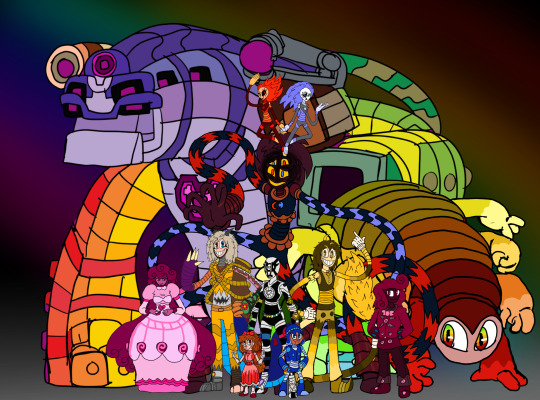
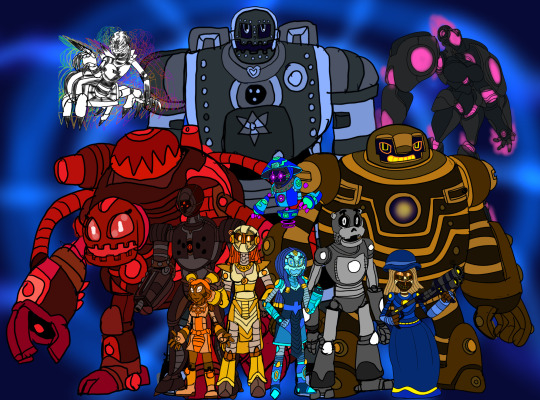
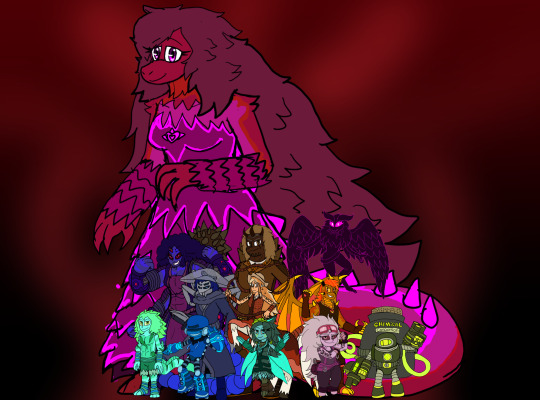
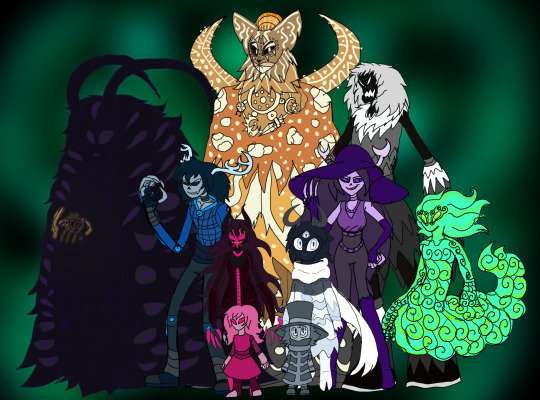
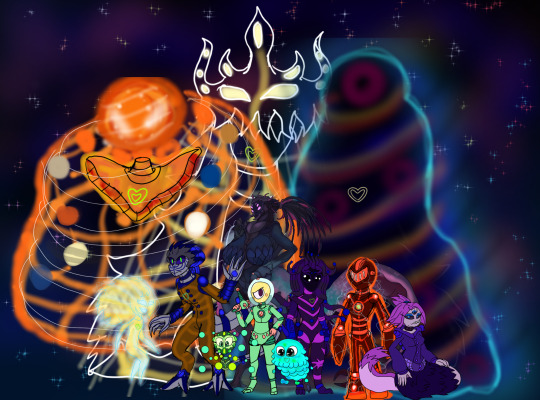
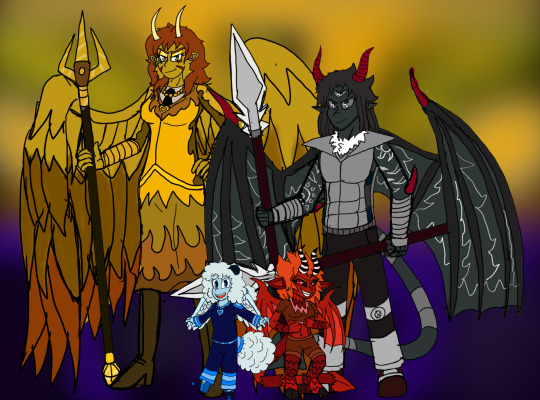
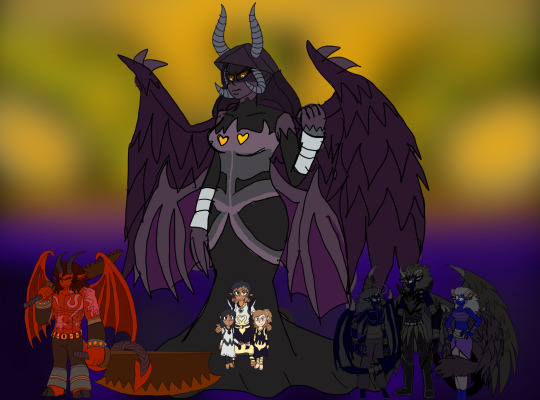
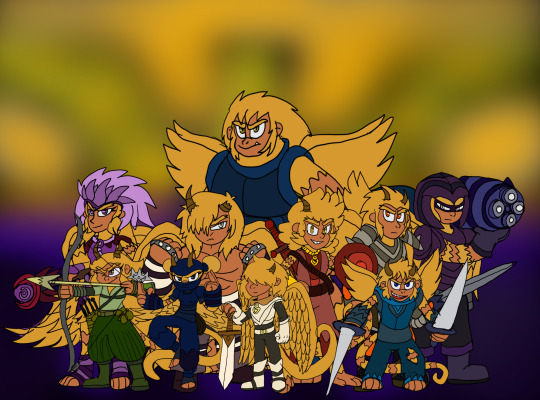
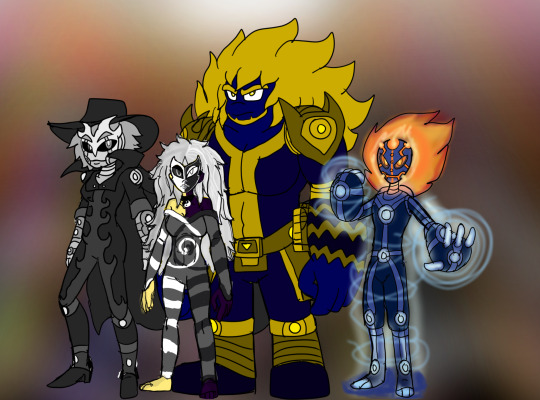
Now for the Final Post for the Anthro Allies. we've seen the Animals Now we see The creatures that are placed in the stories
Object People, Food People, Toons, Automatons, Mythical Creatures, Ghosts, Spirits, Extraterrestrials, Higher Beings, (Angels, Demons, Nephilim's, Gibborims, Cambions, Nephalems, Godabi' s) & Primordial's and Gods
Objects People/Food People
Ortensia (Candy Person)
Jeovanni (Candy Person)
Wowser (Lego Fusion)
Jem (Homunculus)
Sally (Doll)
Timmy (Toy)
Toons
Enigma (Human Turned Toon)
Quiver (Human Turned Toon)
X'Eterra (I'Gaia & T'Oatari) (Toon Fusion)
Kieno (Playdoe toon)
Automatons
X.E.R.O. (Cyborg)
G.I.Z.M.O. (Cydroid)
Ignika (Android)
Patho-Gen (Virus)
Transmute (Technorganic)
Scott (Animatronic)
Gyro & Noid (Droids)
Lottie & Bolts (Bots)
Arsenal (Mech)
Proto (Giant Robot)
Mythical Creatures
Goboro (Golem)
Tulipia (Nymph)
Khemic (Substance Glob)
Vexus (Tetra Arm)
Baladar (Dragon)
Josephine (MothMen)
Tatsuo (Yokai)
Utara (Centaur)
Jamming (Sonar)
Yare (Builder)
Cetus (Sea Monster)
Mimi (Kaiju)
Ghosts and Spirits
Yondara (Spirit)
Nekros (Reaper)
Drocsid (Ghost)
Aura (Soul)
Noelle & Karol (Ancient Wendigo)
Oizta (Eldritch Horror)
Lore (Esoteric Being)
Aliens/Extraterrestrials
Blight
Vyoid
Orbit
Avula
EMP
Dyna
Quartz
Xytaxa
Gram
Yearn
Pymala
Yula
Higher beings
Primia (Angel)
Rampent (Demon
Clouduroy (Cherub)
Iza (Imp)
Bygone (Begone/Beyond) Nephalems
Zodiac (Harmony & Unity) Nephilim
Zenith (Cambion)
Vandalia (Gibborims)
Faye, Uto, Wallop, Zafu, Sentinel, Quickdraw, Knight, Frag, Xebec, Nynx
Primordial's and Gods
Paradigm (Celestial)
Iota (Ex God)
Ultra (Primordial)
Balance (Demi God)
Previous
(For More Information About The Earthdemons, Neo demons, The Anthro allies , the O'Kong family and more of theses characters as well as updates please visit the @the-earthdemon-hub for more)
#My art#My ocs#elementalgod aj#aj the elementalgod#Toonverse ocs#isle 0#The Watchful Eye#Watchful Eye#O'Kong Family#Earthdemon#Neo Demon#Anthro Allies#Toons#Automatons#Robots#Mythics#Ghosts#Spirits#extraterrestrials#Aliens#Angels#Demons#Higher beings#nephilim#Nephalem#Gibborium#Cambion#Godabi#Gods#primordials
4 notes
·
View notes
Text
DR. JUSTIÇA

Alex Wilder
Humano / Feiticeiro
• Magia: Alex Wilder ganhou a capacidade de realizar certos feitos mágicos como resultado de seu acordo com Chadoe, entre esses feitos estão fortes encantamentos, teletransporte e banimento se mágica.
[ Então seu plano é ignorar o problema e esperar que desapareça? Isso é tão típico de você. Todos vocês! ] - Alex Wilder.
HISTÓRIA:
Como os outros Fugitivos originais, Alex Wilder nasceu depois que seus pais e os outros membros do Orgulho decidiram passar a herança dos Gibborim para seus filhos. Os pais de Alex, Geoffrey e Catherine Wilder, eram pequenos criminosos que se tornaram os chefes do crime em toda a área metropolitana de Los Angeles.
Alex cresceu com uma admiração por super-heróis, e até se vestiu de Homem-Aranha para o Halloween quando criança. Seu amor por super-heróis muitas vezes colocava Alex em desacordo com seu pai. Embora seus pais quisessem que ele fosse médico, Alex aspirava a criar videogames para a Rockstar Games. Alex possuí habilidades naturais de liderança, um intelecto talentoso, uma lógica aguçada e uma habilidade estratégica de nível prodígio. Como um introvertido, Alex voltou sua atenção para os jogos de estratégia MMORPG online. Alex até desenvolveu um grupo próximo de amigos online. Alex também nutria uma paixão de longa data por Nico Minoru.
Um ano antes de contar aos outros, Alex testemunhou seus pais realizando o Rito de Sangue. Alex começou a procurar por respostas e descobriu o Abstract, que ele lentamente aprendeu a decodificar. Ele aprendeu sobre o passado do Pride e seus planos para o futuro. Uma noite, enquanto examinava os materiais do Pride, Alex ouviu os planos dos Hayes e dos Deans para matar os membros humanos do Pride, ele decidiu fazer o que fosse necessário para salvar seus pais.

No ano seguinte, na noite do Rito de Sangue, Alex conduziu Nico Minoru, Gertrude Yorkes e Chase Stein pela passagem secreta para "acidentalmente" ver o ritual de sacrifício de Destiny Gonzales enquanto Karolina Dean e Molly Hayes permaneciam no andar de cima.
Alex concordou em ir com os outros enquanto procuravam evidências da maldade de seus pais. Juntos, eles coletaram o dinossauro de Gert, os Fistigons, os X-Ray Specs, o Staff of One, o Abstract e o Abstract Decoder Ring. Alex também ajudou a guiar Karolina e Molly para descobrir seus poderes inatos. Finalmente, Alex conseguiu deixar um bilhete anônimo informando a seus pais que ele ainda era leal a eles.
Alex foi o único Runaways a ir contra assumir codinomes alegando que queria "resgatar" o nome Wilder que seus pais haviam arruinado. Alex passava a maior parte do tempo decifrando o Resumo e traçando seus planos. Alex acreditava que os outros morreriam rapidamente.
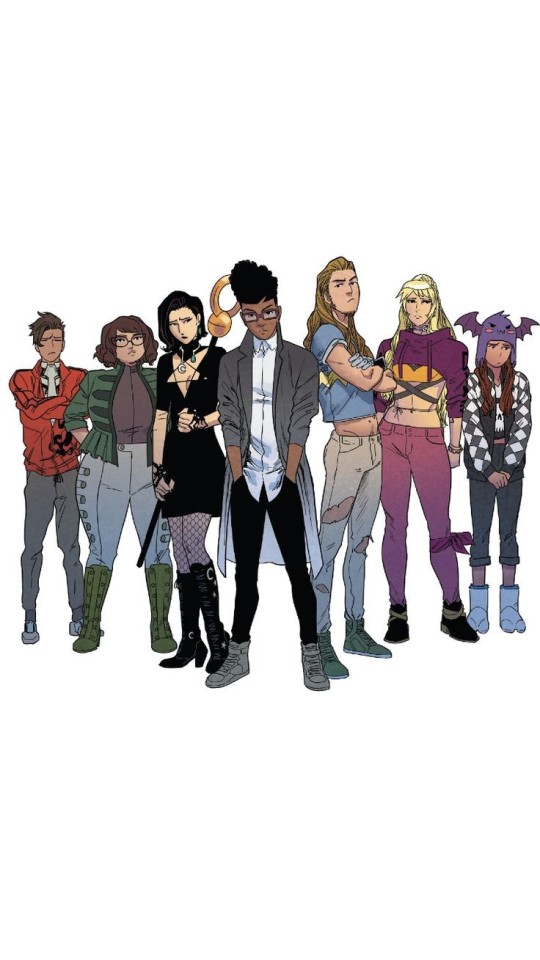
Com seu esconderijo comprometido e o Rito se aproximando, os Fugitivos decidiram levar a batalha até seus pais e os seguiram até o Biotério Marinho. Alex foi capaz de eliminar sistematicamente seus amigos até que pudesse explicar seus planos para seus pais e Nico. Nico recusou furiosamente a oferta de Alex e perdeu o controle da situação. Os Gibborim entraram durante o caos e a confusão e rapidamente mataram Alex por desrespeitá-los.
Em um esforço para escapar do Inferno, Alex Wilder começou a ajudar alguns amigos, e impedi-los de fechar um acordo com os Gibborim. Apesar de suas boas ações, Alex permaneceu preso no Inferno e foi acompanhado pelos Gibborim. Também foi revelado que, enquanto estava no Inferno, Alex estudou os conselhos de ex-criminosos e estrategistas especializados, como Al Capone, Genghis Khan e Sun Tzu, com o objetivo de aprender com seus erros e se tornar o mais formidável senhor do crime de Nova York, preservando legado de seus pais.
Alex Wilder foi ressuscitado por Daimon Hellstrom, o Filho de Satanás para guiar Nico durante sua transição para os Mestres do Mal e para ajudá-la a lidar com seus crescentes poderes mágicos das trevas.
Em seguida, Alex Wilder ressurgiu no Harlem para continuar os negócios de seu pai. Depois de lidar com dois de seus subordinados, os membros do Preemptive Strike, Isadore Dudley e Artie Sigmund, Wilder posteriormente recrutou dois ex-criminosos, Cockroach Hamilton e Disco Devil, bem como recuperou o Agnitus do Señor Mágico e sua tripulação.
Quando Alex se viu perseguido por uma criatura de três cabeças no estilo Cerebrus, ele se reaproximou dos Fugitivos. Depois que a equipe relutantemente esgotou o monstro, descobriu-se que a criatura era o animal de estimação da Semente dos Gibborim, um trio de crianças deuses anciãos que pretendia que os Fugitivos servissem o papel de seus pais na realização de um ritual para capacitá-los.

-> MCU:


3 notes
·
View notes
Text
This was very fun to read and OP’s attention to detail is incredible. I will be delighted if some of this is revealed to be accurate in the third season. However, I see a few holes in this theory, and one of them is pretty fundamental.
I am putting on my Master of Divinity Degree hat. I agree with OP on Neil Gaiman’s skill as a writer, and one thing I love about Good Omens is all the religious stuff. GO is kind of religious fanfiction*, and I am impressed by the writers’ religious literacy and how loyal they are to the religious canons that they are drawing from. Of course they are putting BIG twists on things, but every change is for a reason. They aren’t misappropriating religious images and ideas willy-nilly and saying fuck the context.
My first correction is small. OP asked:
“Why was Crowley wearing sunglasses in the Job scene (2500BC) when he wasn’t wearing them in the two scenes bracketing it in the S1E3 cold open (the Flood and the Crucifixion)?”
I did not notice this! But I love that OP did and I think I know the answer, or at least part of it. In the Hebrew Bible, the story of the Great Flood marks a shift in eras and genres. In the time before the flood (AKA the antediluvian period), the setting and stories are more fantastical, with humans living hundreds of years, and mystical beings (Gibborim and Nephilim) walking around interacting with humans. Essentially, weird stuff was normal, and Crowley’s eyes may not have seemed out of place enough to bother hiding them. By Job’s time, special humans have occasional encounters with angels, but mystical beings are not just hanging out. I don’t have as satisfying of an answer for why he goes without glasses in the crucifixion scene. My guess is that Aziraphale and Crowley are keeping to themselves and not interacting with the humans, whose attention is obviously elsewhere. As opposed to in the Job minisode, where there’s a lot of interaction with humans.
My second correction is more consequential. OP’s whole theory hangs on the idea that the Book of Life is something like a narrative of history and reality that can be controlled and rewritten by God and/or the Metatron, with great consequences for anyone whose storyline gets edited. I think OP’s concept of the BoL comes from Michael’s very brief reference to “Extreme Sanctions” and “Book of Life” on the phone with Beelzebub in E1, and the scene where Beelzebub snatches Crowley down to hell to try to intimidate him into helping Beelzebub find Gabriel:
B: According to what I’m hearing on a grapevine that obviously doesn’t exist, upstairs is seriously troubled about Gabriel’s disappearance. I’m hearing that anybody they find involved in this affair will be dealt with.
C: How?
B: Extreme Sanctions
C: That isn’t actually a thing? That’s just something we used to joke about to frighten the cherubs.
B: No, it exists. Extreme Sanctions. Anyone found involved in Gabriel’s disappearance will be erased from the Book of Life. They won’t just be gone—they will never have existed.
Here are the problems with believing Michael’s and Beelzebub’s take on how the Book of Life works:
Crowley says right there that it’s not true. I’m surprised he believed Beelzebub so easily.
We know now that Beelzebub is desperate to find the angel that they fell in love with, and is pulling out all the stops! Bribes and flattery didn’t work, so they switched to empty threats. Michael’s delivery of the line over the phone is very fishy. And you can hear in Beelzebub’s hesitations that they don’t entirely believe what they’re saying themself. Beelzebub’s elaboration on what it means to be erased from the BoL doesn’t come from Michael—it seems to be made up on the spot.
Most importantly, this is just not what the Book of Life is. In the Hebrew Bible, the Book of Life is described as a book where the names of righteous people get written, indicating that they will be rewarded on the day of judgement (and go to heaven, or have eternal life, etc.) It’s a list of names—a guest list—not a narrative that controls reality. Getting your name erased would suck, but it wouldn’t mean you never existed. And there’s nothing else in it to edit or rewrite. The concept of a supernatural narrative of history and reality does exist in Good Omens—as “The Ineffable Plan.” I don’t believe that Gaiman would confuse these two things.
Now putting on my Bachelor of Googling and Bonus Content and Opinions hat for few little non-religion things:
Muriel shows off the book cover they’re reading because the author (Iain Banks) is a friend of Showrunners Neil and Douglas. (source: X-Ray trivia on E2)
OP asks why Aziraphale rejects Crowley’s offer of wine in the Job minisode. I believe this is just showing that Crowley manages to turn Aziraphale onto alcohol sometime between Job and WWII. David Tennant says in the “Biblically Good” BTS video: “[Crowley] doesn’t manage to introduce Aziraphale to wine that early on, although clearly that’s a part of their relationship that develops.”
The Blitz: Not strange that the theater as open, as this is the historic Windmill Theater, where notably, “performances continued throughout the Second World War even at the height of the Blitz.”
Aziraphale babbles about saving wee Morag instead of actually doing it, because the whole thing is a moral exercise to him, not real until it’s too late. When he thwarts Elspeth’s first sale attempt, he says, “I did a very good thing then,” and he would love to be able to say that about the whole situation. His preoccupation with his own moral purity and clean conscience ties him in knots and prevents him from acting fast enough to save Morag. This is the point of this whole Edinburgh story—that Aziraphale’s lofty sense of good and evil doesn’t work in reality and causes material harm to the most unfortunate humans. Also, is OP asking why the pub is called “The Resurrectionist” if no one actually got resurrected? Because “resurrectionists” is what body snatchers were called in the UK at that time.
I would be thrilled if Crowley’s discordant look in the Job minisode really is about the postdiluvian genre shift, but realistically it’s probably more an artistic choice. X-Ray trivia says that the design of the Job story is based on the biblical illustrations of Harold Copping, and Crowley’s costume is inspired by Moses’s look in The Ten Commandments (1956). Combined with his John Lennon-esque glasses and hair, he’s humorously evoking the 60’s/70’s aesthetics of hippies, the Jesus Movement, and even Jesus Christ Superstar (1973). His flood/crucifixion look just would not have gone with the more playful vibe of the Job minisode. If I took anything from the bonus content, it’s that the creators of this show are just as obsessed with obscure artistic and aesthetic references as they are with sneaky plot references. [Edit: Now I'm wondering if the flood/crucifixion look is inspired by Satan's look in The Passion of the Christ (2004).]
I know too many smart and well-meaning people brainwashed by corporate institutions to be surprised that even an Aziraphale with some growth and understanding under his belt would fall for the offer of “a promotion where you could make a difference.”
These holes in OP’s theory don’t necessarily mean that there’s no memory fudging going on though! It just cannot be to extent (and by the mechanism) OP described. The last reason being it would take a whole season's worth of exposition to cover all these reveals, and we would not have time to even address the hinted Second Coming. But Aziraphale and Crowley going up against doctored memories would be very dramatic and fun, and it would be so satisfying to see how they could prevail.
*We can’t truly call it “Bible fanfiction.” Some of it is based on the Hebrew Bible and Christian Bible, but some of it (Metatron) is based on Jewish Rabbinical writings, a lot of it (the heaven and hell, angels and demons stuff) is based on extra-biblical Catholic tradition, and a lot of it (the Armageddon plot in S1) is based on Futurist Christian Eschatology, a mainly Evangelical view which only got big in the 19th and 20th centuries, and which stretches and embellishes the Book of Revelation (this is my nice way of saying it is wrong).
The Magic Trick You Didn’t See: Being An Analysis of Good Omens Season 2
(or: Neil Gaiman, Your Brain is Gorgeous But I Have Cracked Your Sneaky Little Code And Have You Dead To Rights*) (*Maybe)
***
Soooooo I just spent the last 48 hours having a BREATHTAKING GALAXY BRAIN EPIPHANY about Good Omens Season 2 and feverishly writing a fuckin16,000 word essay about the incredible magic trick that @neil-gaiman pulled off.
Yes, it’s long, but I PROMISE your brains will explode. Do you want to know how magic works? Do you want to know what Metatron’s deal is (I’m like 99% sure of this and it’s EXTREMELY FUCKING GOOD)? Do you want to know about the Mystery of the Vanishing Eccles Cakes and the big fat beautiful clue I found in the opening credits? Do you go through the whole inventory of Chekov’s Firearm & Heavy Artillery Discount Warehouse?
Here is the essay, go read it: https://docs.google.com/document/d/193IXS11XN46lziHRb6eUpM17yK0BQkRqke1Wh64A_e0/ When ur done u can tell me I’m an insane crackpot, and u know what, i won’t even be offended
In case you don’t know whether you want to bother reading the whole enormous thing on google docs, I’ve put the first couple sections of it under the cut. JUST TRUST ME OKAY, HEAR ME OUT, THIS IS VERY EXTREMELY COOL, NEIL IS GOOD AT HIS JOB–
Keep reading
11K notes
·
View notes
Text
Picnic

Título: Picnic.
Fandom: Marvel, Runaways.
Pareja: Tina Minoru X Robert Minoru (Amor).
Palabras: 217 palabras.
Cuadro: 1 “Picnic.”
Clasificación: B.
Sinopsis: Robert y Tina siempre hablan de cosas importantes en los picnics.
Advertencias: Mención de Jonah.
N/A: Esta es mi entrada para Marvel Rare Pair Mini Event Spring Fling 2024. SFW Spring Fling Bingo Card #3.
Links: Wattpad, Ao3, versión en inglés.

Si te gusto por favor vota, comenta y rebloguea.
No doy ningún permiso para que mis fics sean publicados en otra plataforma o idioma (yo traduzco mi propio trabajo) o el uso de mis gráficos (mis separadores de texto también están incluidos), los cuales hice exclusivamente para mis fics, por favor respeta mi trabajo y no lo robes. Aquí en la plataforma hay personas que hacen separadores de texto para que cualquiera los pueda usar, los míos no son públicos, por favor busca los de dichas personas. La única excepción serían los regalos que he hecho ya que ahora pertenecen a alguien más. Si encuentras alguno de mis trabajos en una plataforma diferente y no es alguna de mis cuentas, por favor avísame. Los reblogs y comentarios están bien.
DISCLAIMER: Los personajes de Marvel no me pertenecen (desafortunadamente), exceptuando por los personajes originales y la historia.
Anótate en mi taglist aquí.
Otros lugares donde publico: Ao3, Wattpad, ffnet, TikTok, Instagram, Twitter.
Tags: @sinceimetyou @black23 @unnuevosoltransformalarealidad @azulatodoryuga

Robert y Tina Minoru decidieron tener una pequeña cita en el parque, que fues un picnic, necesitaban hablar de un tema muy importante, tenían pocos meses de casados y las cosas no estaban yendo del todo bien. No obstante unos días antes habían recibido una propuesta un poco extraña.
Se encontraban comiendo los sándwiches mientras observaban los árboles en el parque. Desde que eran novios, cuando querían hablar de algo importante o resolver una situación siempre iban de picnic.
—Entonces… ¿Qué piensas de lo que dijo Jonah? —Tina cuestionó, rompiendo el silencio.
—Suena demasiado ambicioso, ¿realmente crees que haya alguien que pueda influir tanto? —Robert sonaba completamente escéptico.
—Parece alguien muy poderoso, simplemente ve lo que está haciendo con los Gibborim, creo que es una oportunidad que no podemos desperdiciar.
—¿Crees que finalmente podamos tener la empresa que siempre hemos soñado?
—Claro, dijo que era fácil, simplemente debemos de hacer lo que él nos pida.
Las hojas de los árboles comenzaron a caer, Robert comenzó a pensar que quizás su esposa tenía razón, deberían de aceptar, no parecía que pudieran perder algo, ni siquiera tenían que perder, finalmente podrían ver sus sueños hecho realidad.
Mientras tanto Tina se cuestionaba que si funcionaba lo que Jonah les había propuesto, no olvidaran de hacer picnics de vez en cuando.
6 notes
·
View notes